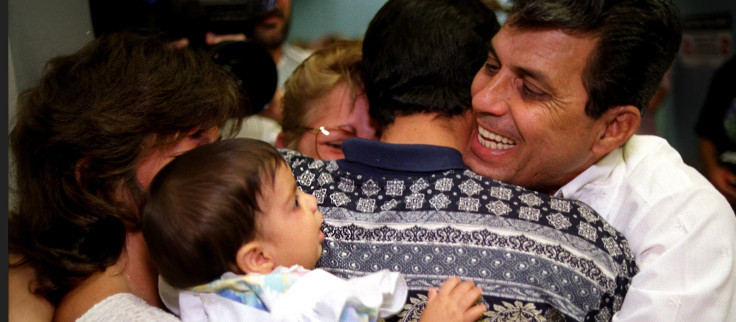
The Cuba, Haiti, Nicaragua, and Venezuela (CHNV) Parole Pathways were created by the Biden administration in 2023 as a way for certain nationals from these countries to apply for entry to the U.S. for a temporary stay of up to two years. A new study from FWD.us has just revealed that not only are they successful at reducing unauthorized migration to the United States-Mexico border, but they significantly reduce the need to rely on public resources and lower costs incurred by welcoming cities and states.
Modeled after the Ukraine initiative, the CHNV pathways have allowed nearly 500,000 people to safely enter the U.S. with sponsors, housing, and support systems in place. The study revealed that the program has had a marked impact on reducing unauthorized migration.
Customs and Border Protection (CBP) reported an 89% decrease in unlawful encounters from Cuba, Haiti, and Nicaragua from a weekly average of 3,453 at the beginning of 2023 to 394 by the end of June 2023. This reduction has eased the pressure on the asylum system and allowed parole recipients to qualify for immediate work authorization, addressing critical labor shortages.
The report highlights significant decreases in border encounters for several nationalities. For Cuba, encounters peaked at 42,654 in December 2022 and fell by 88% to approximately 5,000 a year later. For Nicaragua, encounters dropped from 35,355 in December 2022 to 8,177 in December 2023, a 77% reduction. Haiti saw a substantial reduction in unauthorized crossings due to the combined impact of the CHNV parole pathways and the public launch of CBP One, with sponsors for Haitians applying at the highest volume among eligible nationalities.
In the case of Venezuela, the parole pathways led to a 90% decrease in unauthorized border crossings in January 2023. However, the impact was limited by eligibility requirements amidst the displacement of over 7.3 million Venezuelans in recent years. Demand for the process has outpaced the ability to approve parole for Venezuelans.
One of the most glaring benefits of the program, according to the study is that it provides a "more organized and seamless transition for sponsored individuals to join the workforce, stabilize themselves and their families who have joined them, and even contribute towards the stabilization of their loved ones in their home countries." In fact, nearly all paroled individuals polled achieved financial independence, with only 21% receiving assistance from family members.
Among other sources, the study cites a recent court ruling in Texas which confirmed the positive impact of the CHNV Parole Program on border crossings. The court found that Texas did not have standing to claim harm against the program, and Texas acknowledged the decrease in border apprehensions as a result of the parole pathways. The ruling reinforced the notion that providing legal pathways reduces reliance on smuggling networks.
Among the study's recommendations are to "expand the eligible number of monthly parolees and adjust numbers by nationality to account for changing dynamics in the hemisphere" and "expand the use of parole to additional countries", including countries like Ecuador and El Salvador.
© 2025 Latin Times. All rights reserved. Do not reproduce without permission.




